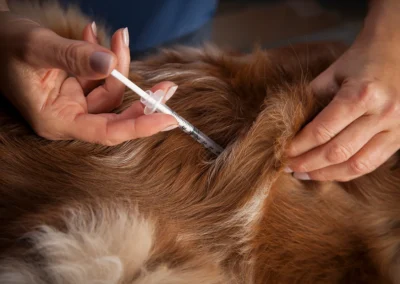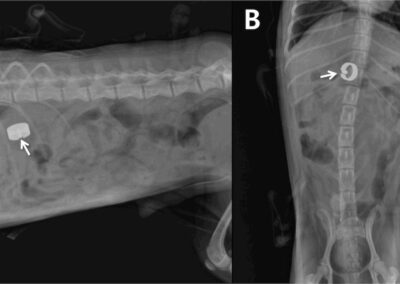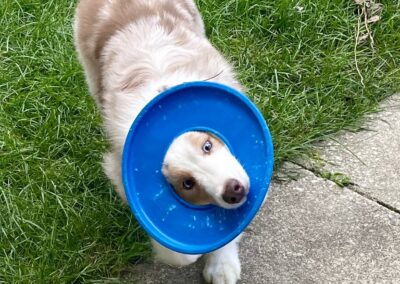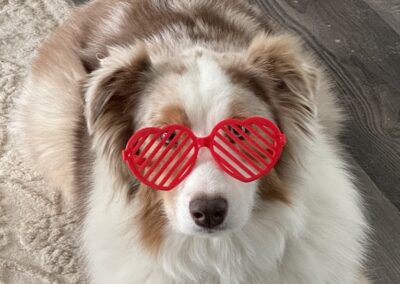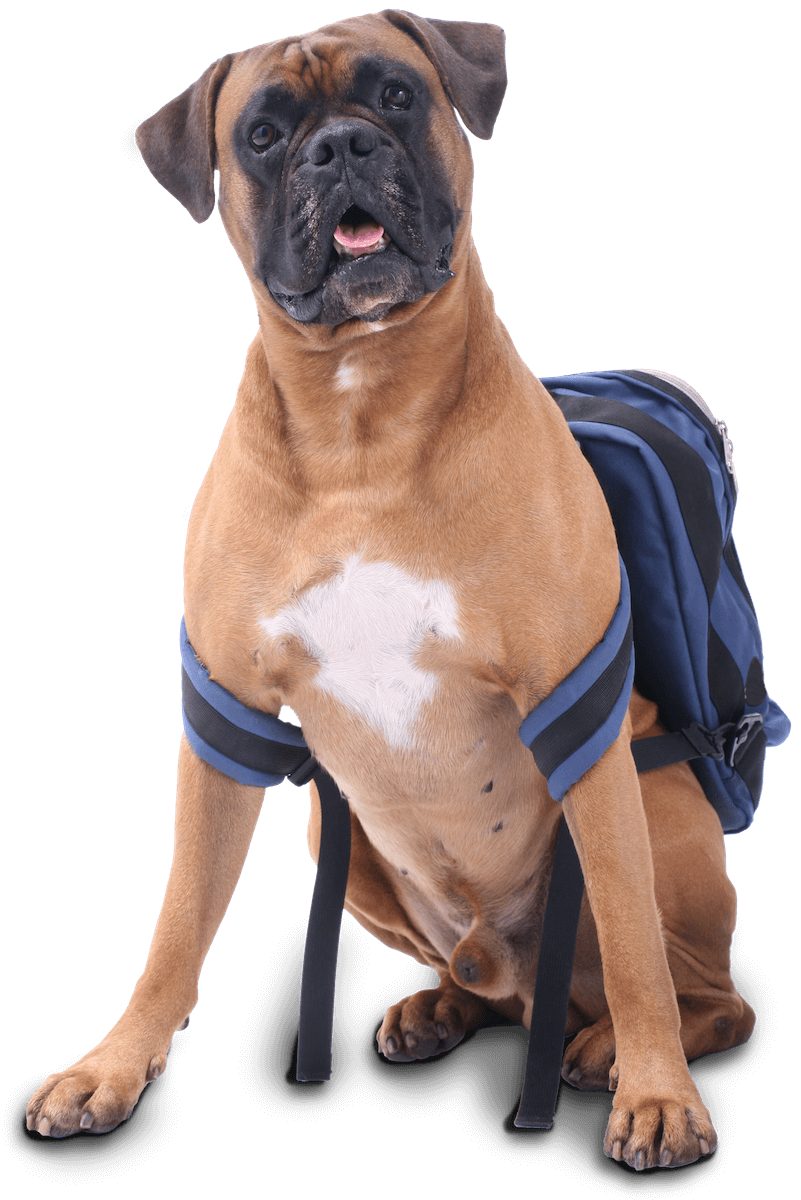[vc_row][vc_column][trx_section box=”yes”][trx_title align=”center” color=”#d9ae4c” weight=”700″]
Check the Chip
[/trx_title][trx_title align=”center” color=”#d9ae4c” weight=”700″]
Learn About Microchipping Your Dog
[/trx_title][trx_title type=”4″ align=”center” color=”#434544″ weight=”700″ bottom=”mini”]by Dr. Eileen Savier CVA, CVCH[/trx_title][vc_column_text]
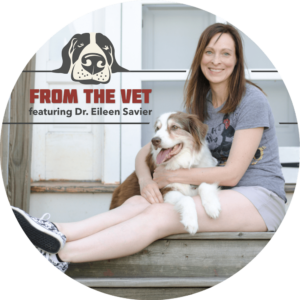
Microchips are small identification (not GPS tracking) chips that are implanted between the shoulder blades of pets. When scanned by a veterinarian or animal shelter a specific number is displayed. This number is linked to your contact information so you can be contacted about the location of your lost pet. The goal is that if you pet is lost and tag identification is not available there is another avenue to get your fur baby home. I recommend all pets, even indoor only cats, have a microchip implanted. Accidents can happen at any time — your dog can slip out of his collar if scared, the contractor may leave the door open, or any time the kids are “helping” take care of the animals!
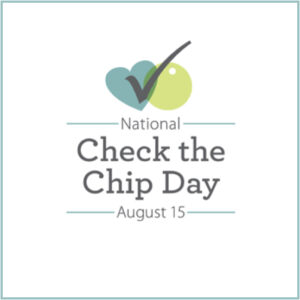 Microchipping is a two step process. Step one is having a veterinary professional implant the microchip (Home Again or Avid) during an office call. This is done by using a needle to inject a microchip under the skin. The microchip is scanned before and after implantation to be sure that the chip is functioning and that it’s placement is appropriate. Step two is REGISTRATION!!!! This is the most important part and may be done by the veterinary professional who implanted the chip or by the pet owner. Please clarify who is responsible for registration at the time the microchip is implanted. Be sure to call the company to update your contact information in the event you move or change your phone number.
Microchipping is a two step process. Step one is having a veterinary professional implant the microchip (Home Again or Avid) during an office call. This is done by using a needle to inject a microchip under the skin. The microchip is scanned before and after implantation to be sure that the chip is functioning and that it’s placement is appropriate. Step two is REGISTRATION!!!! This is the most important part and may be done by the veterinary professional who implanted the chip or by the pet owner. Please clarify who is responsible for registration at the time the microchip is implanted. Be sure to call the company to update your contact information in the event you move or change your phone number.
National “Check the Chip” Day (August 15) is a day to make sure that the microchip that was implanted in your pup when he was a puppy is still functioning. Just like any other piece of technology every now and then they malfunction. If you cannot make it into your veterinarian to get your pets chip checked this August, be sure to ask your veterinarian at each annual wellness appointment make sure your pet’s microchip is still working.

A few things to remember about microchips:
- Microchips are NOT a Global Positioning System (GPS). If you want GPS as added protection and immediate location check out Whistle Activity Monitor, POD Tracker, or Wuf.
- If you do not register your pet there is no way to locate you or the veterinary professional who implanted the microchip. This is also true if the microchip malfunctions and will not scan.
- Microchips are not all made the same. Be sure to purchase a microchip from a veterinary professional and have it implanted by a professional to avoid unnecessary complications.
- Microchips migrate under the skin over time. Sometimes it may be difficult to find a microchip. If you know you have microchipped you pet and it cannot be found with a universal scanner you can ask your veterinarian to take an x-ray to fin the location.
Many microchip companies offer additional services for a yearly fee. If you find value in these services then pay the yearly fee — some even cover the cost of some veterinary consulting services like ASPCA Poison Control. Your microchip and registration will stay available even if you do not decide to use the additional services.
[/vc_column_text][/trx_section][/vc_column][/vc_row][vc_row css=”.vc_custom_1533135180690{margin-top: 40px !important;}”][vc_column css=”.vc_custom_1533134942241{background-color: #d9ae4c !important;}”][trx_title type=”2″ align=”left” color=”#f6f2e4″ left=”20″ right=”20″]About Dr. Eileen Savier[/trx_title][vc_column_text css=”.vc_custom_1533135315368{padding-right: 20px !important;padding-bottom: 30px !important;padding-left: 20px !important;}”]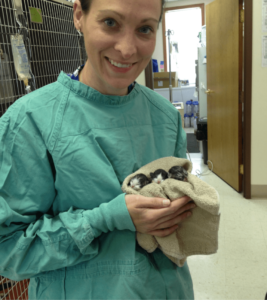 Barks & Recreation is proud to feature Dr. Eileen Savier CVA, CVCH as our Veterinary Blogger in our “From the Vet” Series. Currently part of the team of doctors at Keystone Veterinary Clinic, Dr. Savier is a 2012 Graduate of the Ross University School of Veterinary Medicine, She completed her clinical experience at The Ohio State University and after veterinary school she pursued further education and certification in Veterinary Acupuncture, Chinese Herbal Medicine, and Fear Free veterinary visits. Dr. Savier has a special interest in integrative medicine, animal behavior, and internal medicine and is committed to improving animal health care by integrating Eastern and Western philosophies. She enjoys working with fearful & aggressive dogs and cats and she has had additional training in low stress handling techniques and encourages positive reinforcement during exams and procedures. Her clinical interests include pain management, animal behavior, geriatric patient care, and internal medicine. Dr. Savier is a member of the following associations:
Barks & Recreation is proud to feature Dr. Eileen Savier CVA, CVCH as our Veterinary Blogger in our “From the Vet” Series. Currently part of the team of doctors at Keystone Veterinary Clinic, Dr. Savier is a 2012 Graduate of the Ross University School of Veterinary Medicine, She completed her clinical experience at The Ohio State University and after veterinary school she pursued further education and certification in Veterinary Acupuncture, Chinese Herbal Medicine, and Fear Free veterinary visits. Dr. Savier has a special interest in integrative medicine, animal behavior, and internal medicine and is committed to improving animal health care by integrating Eastern and Western philosophies. She enjoys working with fearful & aggressive dogs and cats and she has had additional training in low stress handling techniques and encourages positive reinforcement during exams and procedures. Her clinical interests include pain management, animal behavior, geriatric patient care, and internal medicine. Dr. Savier is a member of the following associations:
- American Veterinary Medical Association (AVMA)
- International Veterinary Academy of Pain Management (IVAPM)
- American Association of Feline Practitioners (AAFP)
- American Veterinary Society of Animal Behavior (AVSAB)
- American Association of Traditional Chinese Veterinary Medicine (AATCVM)
- Ohio Veterinary Medical Association (OVMA)
Dr. Savier shares her home with two (soon to be three) dogs, two cats, and a toddler. She lovingly refers to her two dogs as Coconut Retrievers as they were rescue dogs she brought home from the island of St. Kitts. In her free time she enjoys spending time with her family, going to the beach, and planning her next Disney vacation.
Join us every month for Dr. Savier’s “From the Vet” series to get more information related to the health and welfare of your furry family members![/vc_column_text][/vc_column][/vc_row]

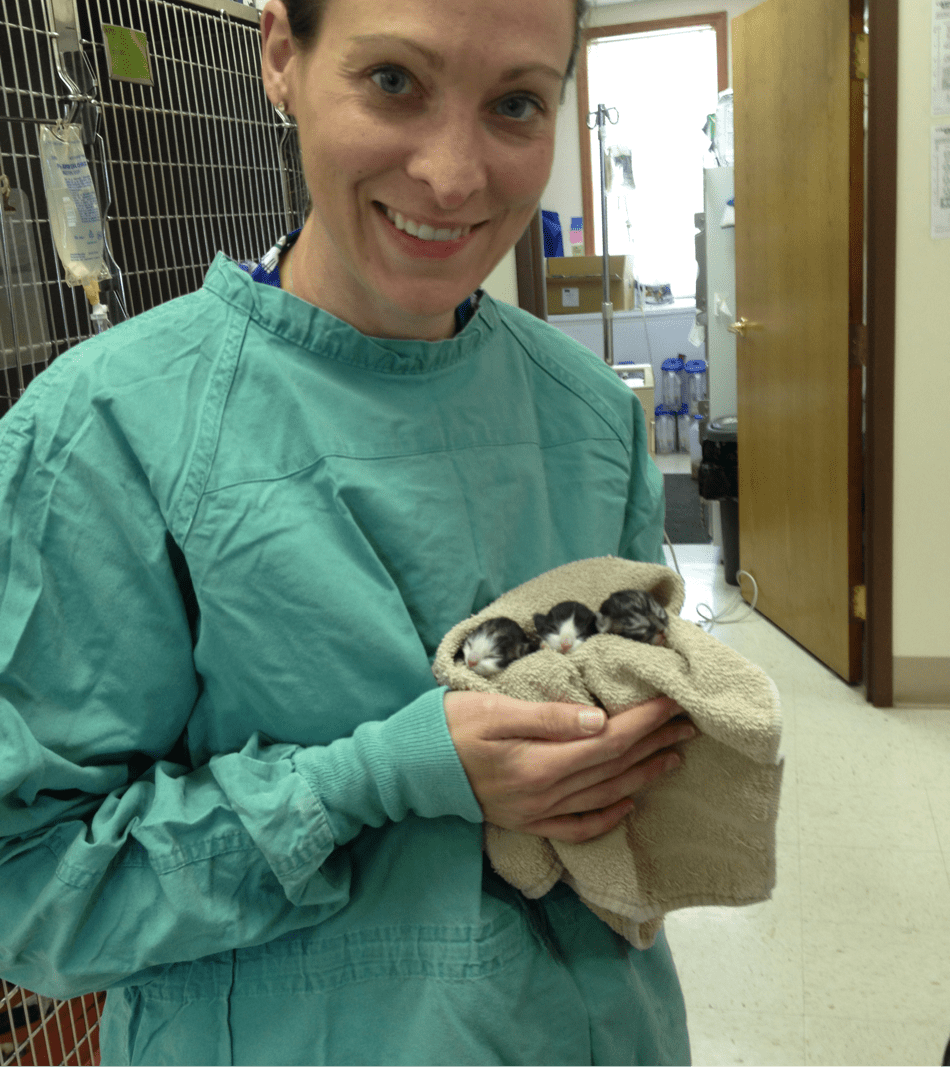 Barks & Recreation is proud to feature Dr. Eileen Savier CVA, CVCH as our Veterinary Blogger in our “From the Vet” Series — offering information related to the health and welfare of your furry family members! Currently part of the team of doctors at Keystone Veterinary Clinic, Dr. Savier is a 2012 Graduate of the Ross University School of Veterinary Medicine, She completed her clinical experience at The Ohio State University and after veterinary school she pursued further education and certification in Veterinary Acupuncture, Chinese Herbal Medicine, and Fear Free veterinary visits. Dr. Savier has a special interest in integrative medicine, animal behavior, and internal medicine and is committed to improving animal health care by integrating Eastern and Western philosophies. She enjoys working with fearful & aggressive dogs and cats and she has had additional training in low stress handling techniques and encourages positive reinforcement during exams and procedures. Her clinical interests include pain management, animal behavior, geriatric patient care, and internal medicine.
Barks & Recreation is proud to feature Dr. Eileen Savier CVA, CVCH as our Veterinary Blogger in our “From the Vet” Series — offering information related to the health and welfare of your furry family members! Currently part of the team of doctors at Keystone Veterinary Clinic, Dr. Savier is a 2012 Graduate of the Ross University School of Veterinary Medicine, She completed her clinical experience at The Ohio State University and after veterinary school she pursued further education and certification in Veterinary Acupuncture, Chinese Herbal Medicine, and Fear Free veterinary visits. Dr. Savier has a special interest in integrative medicine, animal behavior, and internal medicine and is committed to improving animal health care by integrating Eastern and Western philosophies. She enjoys working with fearful & aggressive dogs and cats and she has had additional training in low stress handling techniques and encourages positive reinforcement during exams and procedures. Her clinical interests include pain management, animal behavior, geriatric patient care, and internal medicine. Dr. Savier shares her home with two (soon to be three) dogs, two cats, and a toddler. She lovingly refers to her two dogs as Coconut Retrievers as they were rescue dogs she brought home from the island of St. Kitts. In her free time she enjoys spending time with her family, going to the beach, and planning her next Disney vacation.
Dr. Savier shares her home with two (soon to be three) dogs, two cats, and a toddler. She lovingly refers to her two dogs as Coconut Retrievers as they were rescue dogs she brought home from the island of St. Kitts. In her free time she enjoys spending time with her family, going to the beach, and planning her next Disney vacation.